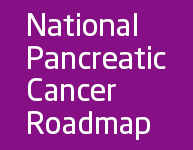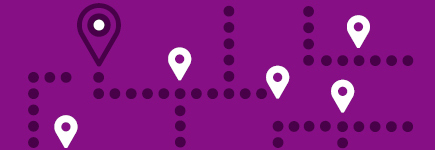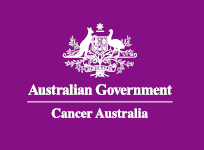About you
1. I consent to my response being published on the Department of Health website, and acknowledge that it will be publicly accessible, including to people overseas. My consent is given in accordance with the following preference:
Please select one item
(Required)
Radio button:
Ticked
Publish my response, including my name and the name of my organisation (if relevant)
Radio button:
Unticked
Publish my response, without my name but include the name of my organisation (if relevant)
Radio button:
Unticked
Publish my response without my name or the name of my organisation
Radio button:
Unticked
I do not consent to my response being published on the Department of Health website. Do not publish my response
2. What is your name?
Name
(Required)
John Clements
5. Are you of Aboriginal or Torres Strait Islander origin?
Please select all that apply
(Required)
Checkbox:
Ticked
No
Checkbox:
Unticked
Yes, Aboriginal
Checkbox:
Unticked
Yes, Torres Strait Islander
Checkbox:
Unticked
Prefer not to say
7. What is your interest in pancreatic cancer?
Please select all that apply
(Required)
Checkbox:
Unticked
I have / have had pancreatic cancer
Checkbox:
Ticked
I have a family member / relative with pancreatic cancer
Checkbox:
Ticked
I am a member of the public / general interest
Checkbox:
Unticked
I have a work-related interest in pancreatic cancer - Health professional – primary care
Checkbox:
Unticked
I have a work-related interest in pancreatic cancer - Health professional – specialist
Checkbox:
Unticked
I have a work-related interest in pancreatic cancer – Health professional - nurse
Checkbox:
Unticked
I have a work-related interest in pancreatic cancer - Health professional – allied health
Checkbox:
Unticked
I have a work-related interest in pancreatic cancer – Aboriginal and Torres Strait Islander Health Worker / Health Professional
Checkbox:
Unticked
I have a work-related interest in pancreatic cancer - Researcher
Checkbox:
Unticked
I have a work-related interest in pancreatic cancer - Health policy / administration
Checkbox:
Ticked
I have a work-related interest in pancreatic cancer - Consumer advocacy / support
8. If you have a work-related interest in pancreatic cancer, what type of organisation do you work for?
Please select all that apply
(Required)
Checkbox:
Ticked
Consumer organisation
Checkbox:
Unticked
Health or medical service / service provider
Checkbox:
Unticked
Aboriginal Medical Service / Aboriginal Community Controlled Health Organisation
Checkbox:
Unticked
Professional college, society or organisation
Checkbox:
Ticked
Research organisation
Checkbox:
Unticked
Government / government organisation
Checkbox:
Unticked
Non-government organisation
Checkbox:
Unticked
Industry
Checkbox:
Unticked
Other
If you are comfortable to tell us the name of your organisation, please include it here.
WEHI, VCCC
National Pancreatic Cancer Roadmap
12. What do you think are the most important issues to be addressed in pancreatic cancer in Australia?
What do you think are the most important issues to be addressed in pancreatic cancer in Australia?
1) Diagnosis - My wife was diagnosed with pancreatic cancer back in 2013, after spending some 10 months of going back and forward to the doctor's/hospital. Her condition was finally indicated by a stool test and, on reflection, it seems to me that this extreme length of time was fostered by the insidious way in which this conditions presents. Because the symptoms can be so varied and vague, I think that the approach should be changed from trying to diagnose something so insidious to first trying to rule it out.
2) Pain management - In 2015, my wife's illness reached the point where her tumour closed down her small intestine and she required a gastric bypass. After this was done she began to experience pain for the first time and was prescribed Oxycontin. She then entered a pattern of taking the painkiller, which worked for a while, having the pain return, having her Oxycontin dose increased and then going through the same pattern again. Over a period of some 5 months, her dose was increased from 10mcg morning and evening to 60mcg morning and evening, at which point she seemed as though she was going to die from the medication. She was taken to the Emergency department where, for the first time, she was visited by a palliative care doctor who told her, and I quote....."Well, I can see one problem straight away......Oxycontin is designed to be absorbed in the duodenum and, as you have had a bypass, you effectively don't have one"!!! So she was being poisoned by the Oxycontin !! I found this revelation to be both appalling and most revealing. How on earth can the medical profession in this day and age be so pathetically ignorant as to allow this to happen ??
3) Palliative care - As I said earlier, my wife was not referred to palliative care until far too late in the course of her illness and our first experience was when her oncologist referred us to the wrong service as he didn't know where the hospital's catchment area was !! It also struck me that there was a marked reluctance on his part to make that referral as it involved some kind of admission of defeat on his part (just my opinion).
Overall, I found the care my wife was given was fairly good but I am of the strong opinion that we can do much better.
By the way......as far as I can see, your Item 11 doesn't work and I have been unable to attach any documents.
2) Pain management - In 2015, my wife's illness reached the point where her tumour closed down her small intestine and she required a gastric bypass. After this was done she began to experience pain for the first time and was prescribed Oxycontin. She then entered a pattern of taking the painkiller, which worked for a while, having the pain return, having her Oxycontin dose increased and then going through the same pattern again. Over a period of some 5 months, her dose was increased from 10mcg morning and evening to 60mcg morning and evening, at which point she seemed as though she was going to die from the medication. She was taken to the Emergency department where, for the first time, she was visited by a palliative care doctor who told her, and I quote....."Well, I can see one problem straight away......Oxycontin is designed to be absorbed in the duodenum and, as you have had a bypass, you effectively don't have one"!!! So she was being poisoned by the Oxycontin !! I found this revelation to be both appalling and most revealing. How on earth can the medical profession in this day and age be so pathetically ignorant as to allow this to happen ??
3) Palliative care - As I said earlier, my wife was not referred to palliative care until far too late in the course of her illness and our first experience was when her oncologist referred us to the wrong service as he didn't know where the hospital's catchment area was !! It also struck me that there was a marked reluctance on his part to make that referral as it involved some kind of admission of defeat on his part (just my opinion).
Overall, I found the care my wife was given was fairly good but I am of the strong opinion that we can do much better.
By the way......as far as I can see, your Item 11 doesn't work and I have been unable to attach any documents.
13. What do you think could make the biggest difference in improving outcomes for people with pancreatic cancer in Australia?
What do you think could make the biggest difference in improving outcomes for people with pancreatic cancer in Australia?
Having the various groups (like oncology and palliative care) respecting each other enough to work together efficiently. After all, this is about the patients and is no place for some sort of "turf war".
14. Are there unique or special challenges and considerations for specific population groups with pancreatic cancer?
Are there unique or special challenges and considerations for specific population groups with pancreatic cancer?
Obviously, people whose first language is not English would encounter extra difficulties.
15. What do you think are the main challenges and opportunities in the clinical care of pancreatic cancer in Australia?
What do you think are the main challenges and opportunities in the clinical care of pancreatic cancer in Australia?
1) In my experience, some doctors allow their egos to get in the way of there doing the best possible job for the patient.
2) There needs to be some way of informing the general public about what palliative care actually is and what it can do for the. Most people don't have a clue.
2) There needs to be some way of informing the general public about what palliative care actually is and what it can do for the. Most people don't have a clue.
16. What do you think are the main challenges and opportunities for research into pancreatic cancer (including basic research and clinical trials)?
What do you think are the main challenges and opportunities for research into pancreatic cancer (including basic research and clinical trials)?
I don't know much about this part.
I do have involvement as a consumer representative with both the Walter and Eliza Hall Institute for Medical Research (WEHI) and the Victorian Comprehensive Cancer Centre (VCCC) but my activities with these organisations are focused on things other than pancreatic cancer.
I do have involvement as a consumer representative with both the Walter and Eliza Hall Institute for Medical Research (WEHI) and the Victorian Comprehensive Cancer Centre (VCCC) but my activities with these organisations are focused on things other than pancreatic cancer.
17. Do you have any other comments and / or insights from your own experience with pancreatic cancer that you think would be helpful to inform the roadmap?
Do you have any other comments and / or insights from your own experience with pancreatic cancer that you think would be helpful to inform the roadmap?
No.



